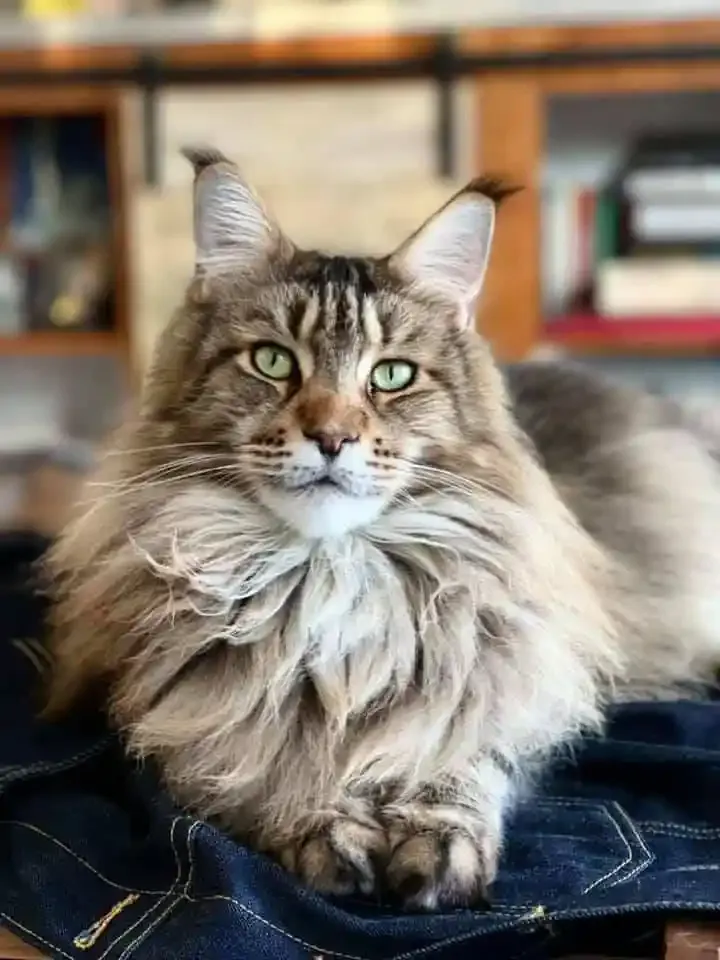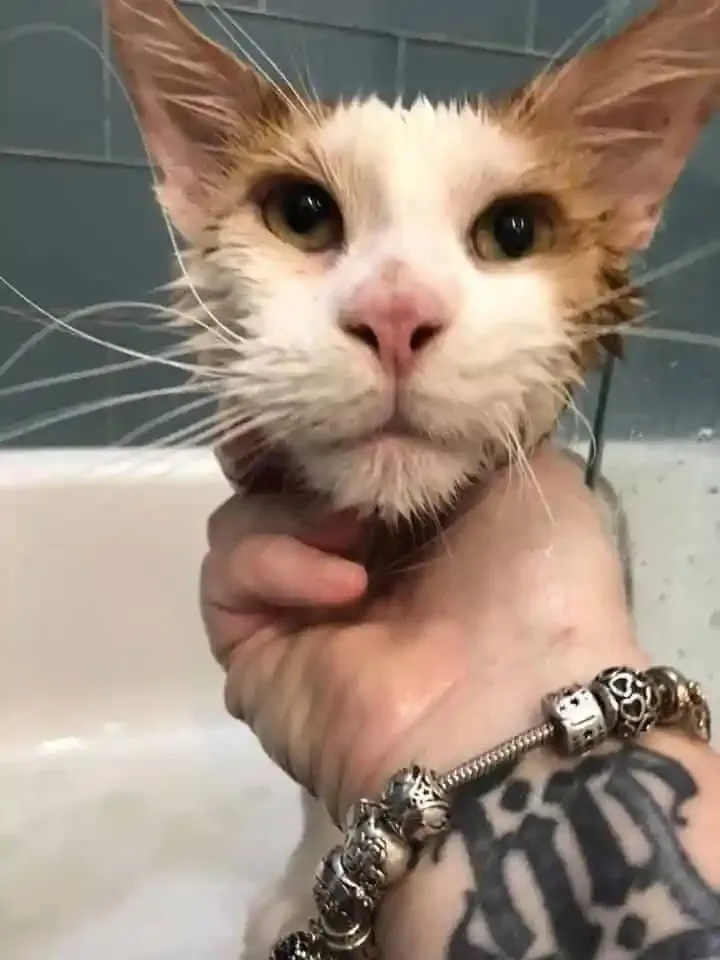Maine Coon cats have long been rumored to enjoy water more than typical felines. Unlike most cats that flee at the sight of a puddle, these gentle giants are said to tolerate—or even seek out—baths and splashes. But is this true? As a seasoned Maine Coon breeder with years of hands-on experience, I’ve tested this claim firsthand with my own cats. In this article, we’ll explore whether Maine Coon cats like water through real-life water tests, sharing results, tips, and why early exposure matters for grooming and health.
These majestic breeds, known for their waterproof coats and dog-like personalities, often face myths about their affinity for moisture. Drawing from my cattery’s grooming routines and cat show preparations, I’ll break down individual reactions from three Maine Coons: Finlay, Omega, and Headhunter. This isn’t just theory—it’s practical insights to help owners like you manage bath time effectively.
Testing Finlay: The Water-Averse Veteran
Finlay, my oldest Maine Coon at over several years, has a quirky trait: a sensitive stomach. Anything off-menu, like a sneaky piece of deli roast beef, triggers Maine Coon diarrhea, turning cleanup into a nightmare. Once, after such an incident, I tried a gentle sink bath with warm, soapy water—no running faucet to scare him. Disaster struck immediately.
His eyes widened like saucers, claws extended, and he thrashed wildly, embedding them in my chest. With my husband’s help, we transferred him to the bathtub, doors closed for safety. Finlay leaped frantically, which ironically dislodged the mess, but he was furious throughout. Post-bath, we toweled him off quickly and vowed no more risky treats.
This experience highlights individual personalities in Maine Coons. While their thick, water-repellent fur sheds moisture well, not all embrace immersion. Veterinary sources like the Cornell Feline Health Center emphasize gentle handling to avoid stress, which can exacerbate tummy issues.
 Maine Coon cats getting wet during a bath test
Maine Coon cats getting wet during a bath test
Conclusion for Finlay: He does not like water. Patience and positive reinforcement are key for reluctant cats—start with damp cloths before full baths.
Omega: The Calm Giant Who Tolerates Baths
Omega, my stunning white Maine Coon, weighs a hefty 30 pounds at just three years old. Nicknamed the “abominable snowman” for his fluffy white coat, he’s a gentle soul who thrives in social settings, including multiple cat shows in the neuter premiere class.
Grooming days revealed his water tolerance early. Bathtime in the tub with mild shampoo was straightforward; I even joined him as a “rubber ducky” to rinse thoroughly. He stayed relaxed, no clawing or fleeing. For the running water test, a slow trickle didn’t faze him—he simply observed.
Omega’s composure aligns with Maine Coon traits documented by the Cat Fanciers’ Association: their semi-waterproof undercoat and laid-back demeanor make baths feasible. Regular grooming prevents matting, especially in long-haired variants like Maine Coon silver shades.
Conclusion for Omega: He likes water! Ideal for owners seeking low-drama hygiene routines.
Headhunter: Stud Tail Survivor and Bath Enthusiast
Headhunter, a former sire from my Sassy Koonz cattery, maintains impeccable grooming naturally. At around 12 months, he developed stud tail—a greasy buildup at the tail base common in intact males, per the American Veterinary Medical Association (AVMA).
To address it, I filled the bathtub with warm water and fresh kitty shampoo. Placing him inside, I noted his tolerance; he sat calmly as I scrubbed, even allowing a double wash for his tail. For efficiency, I hopped in too—rinsing long fur is easier that way. Afterward, he endured blow-drying and brushing like a pro.
 Close-up of a Maine Coon during water tolerance test
Close-up of a Maine Coon during water tolerance test
This success underscores grooming’s role in health. Early baths combat issues like stud tail, reducing infection risks as advised by feline dermatology experts.
Conclusion for Headhunter: He likes water! His experience shows Maine Coons can adapt with routine care.
Do Maine Coon Cats Really Like Water? Key Takeaways
Not every Maine Coon swims laps—Finlay proves exceptions exist. However, my tests suggest most tolerate water better than average cats, thanks to their rugged heritage from Maine’s harsh winters. Their coat’s natural oils create a waterproof barrier, causing water to bead and roll off, a trait breeders like me observe daily.
Videos from fellow Maine Coon enthusiasts show some diving into pools, but mine prefer controlled baths. For ginger Maine Coon owners or others, start young: Introduce kittens to shallow water with toys and treats during Maine Coon kitten stages. This builds positive associations, much like car rides or brushing.
Experts from the International Cat Association recommend hypoallergenic shampoos and thorough drying to prevent chills. In my cattery since 2017, we’ve raised dozens accustomed to water, ensuring healthy, show-ready coats.
Final Thoughts on Bathing Your Maine Coon
Maine Coon cats’ water affinity varies, but tolerance is common with proper techniques. Prioritize safety, use vet-approved products, and consult professionals for issues like diarrhea or skin conditions. Early, rewarding baths foster lifelong ease—your gentle giant will thank you with purrs.
Ready to test your own? Share experiences in comments, and explore more on Maine Coon care. For unique patterns like khao manee cat price comparisons or health tips, check our guides.
References
- Cornell Feline Health Center: Feline Grooming and Bathing Guidelines.
- Cat Fanciers’ Association: Maine Coon Breed Standard.
- American Veterinary Medical Association: Managing Feline Skin Conditions.
